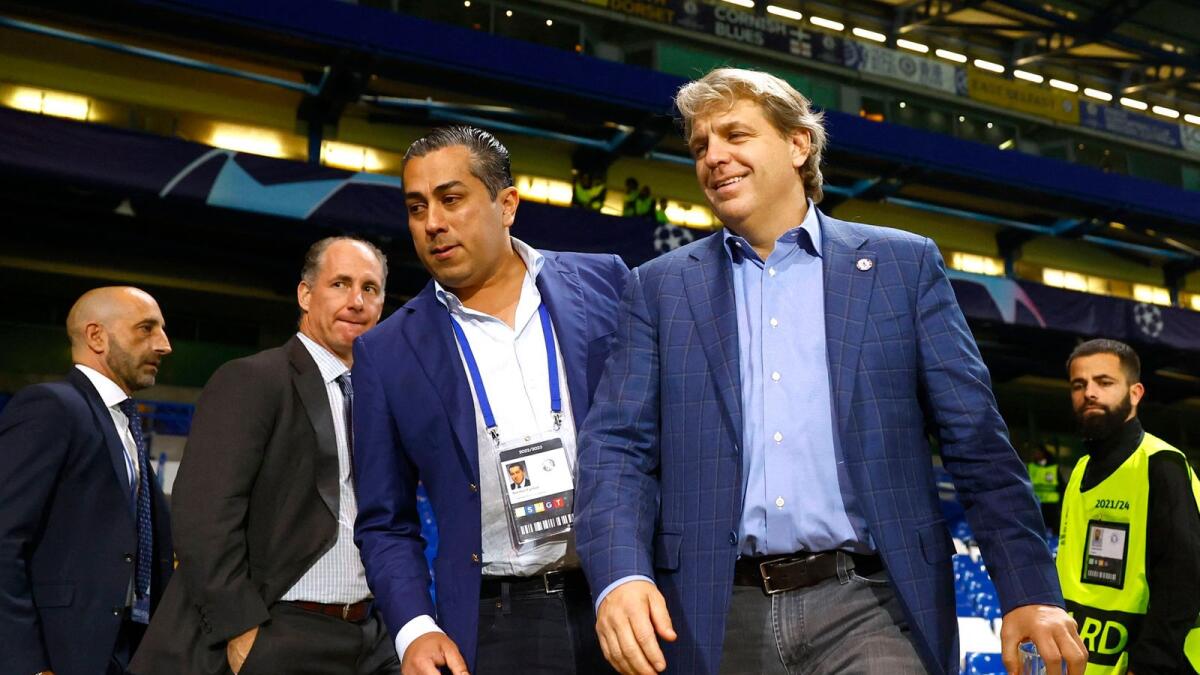Chelsea Football Club has been the subject of a power struggle between co-owners Todd Boehly and Behdad Eghbali, following a turbulent transfer window. Since joining forces to buy the club over two years ago, Chelsea have spent more than £1 billion on player acquisitions, raising concerns among loyal fans. Boehly, the face of the 2022 takeover, played a brief role as the club’s sporting director before Eghbali became more involved in the ownership group.
Reportedly, disagreements between Boehly and Eghbali have arisen in recent months, particularly in terms of recruitment policy, poor results, and the lack of progress on a new stadium. The departure of manager Mauricio Pochettino was a point of contention, as Boehly backed the Argentine while Eghbali and other club directors favored a new approach. This led to the appointment of Enzo Maresca as Chelsea’s fourth manager in less than two years.
Speculation suggests that Boehly and Eghbali are exploring the possibility of buying each other’s shares in Chelsea, with Boehly owning a 13 percent stake and Eghbali’s Clearlake Capital holding a majority 61.5 percent. Despite the hefty £1.1 billion spent on players, Chelsea have failed to achieve significant success under the new ownership. The club, once a dominant force in English football, has struggled to replicate past glory, finishing 12th and sixth in the last two Premier League seasons.
Chelsea’s lavish spending has attracted criticism, with the Chelsea Supporters’ Trust labeling the club a “laughing stock” on and off the pitch. However, there have been some bright spots, such as the successful acquisitions of young talent like Cole Palmer and Noni Madueke. The club has also implemented salary reductions and performance-based incentives in player contracts to manage costs effectively.
Amidst financial fair play regulations, Chelsea’s extravagant transfer activity stands out, as other clubs have become more cautious in the market. The club has managed to navigate these rules strategically, including selling assets like hotels on the Stamford Bridge site to potentially increase revenues. Despite the challenges and internal conflicts, Chelsea will aim to stabilize and regain their competitive edge to bring back silverware under the Boehly-Eghbali ownership.
In conclusion, the ongoing power struggle between Chelsea co-owners Boehly and Eghbali highlights the complexities of modern football ownership. With conflicting views on recruitment, managerial decisions, and overall performance, the club’s future remains uncertain. As Chelsea navigates financial regulations and attempts to balance ambitious spending with on-field success, the fans will be eagerly watching to see how the club evolves under the new ownership structure. Ultimately, the success of Chelsea’s ownership group will be judged by its ability to deliver results on the pitch and restore the club to its former glory in English football.










